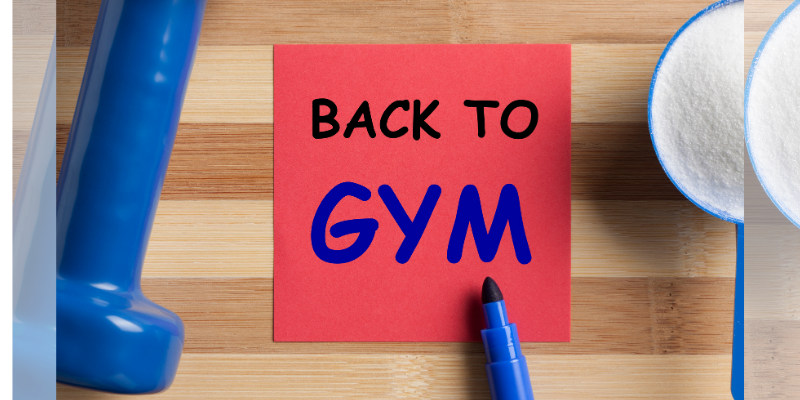Around 80% of women experience period pain, or dysmenorrhoea to use its medical name, at some stage in their lifetime. Women can suffer from period pain from their early teens right up to menopause, with most women experiencing discomfort at the very least during each menstrual cycle. For some women, period pain can be debilitating, with the pain severe enough to disrupt their lives and prevent them from carrying out daily activities.

What is normal?
If you are reading this, you may be thinking ‘What is normal?’ and ‘Is my monthly pain something I just need to put up with?’
NuroKor’s Medical Science Director, Irem Tezer Ates believes that if your menstrual cycle is causing so much pain and interfering with your life to the point where you cannot go to school or work, then it is a clear sign that something is not normal. Irem explains:
“You should be taken seriously if your period pain is holding you back from being at your best - both mentally and physically a few days each month.” She continues to advise that if the pain persists, “you should consult with your medical professional about your symptoms and get yourself checked up accordingly.”

GP and expert advisor to NuroKor, Dr Leah Austin agrees, and believes a woman’s period pain is not normal if the pain is so severe that you cannot continue with daily activities. She goes on to say:
“As many as 3 in 4 women suffer from period pain at some point in their lifetime. It’s important to remember that pain is very individualised and what may seem mild for some could be severe for others, so listening to your body and understanding what is ‘normal’ for you is important.”

Seeking professional help
Both doctors’ warn that if you have symptoms such as heavy bleeding where you have to change your sanitary pads more than every two hours, or you have severe pain during your menstrual period, you might want to consider reaching out to your health care professional as there may be an underlying problem that requires attention.

Dr Irem gives some specific examples of symptoms which could warrant visiting a doctor:
“Severe symptoms could include not being able to get out of the bed due to experiencing heavy pain, bleeding between menstrual cycles and/or during sexual intercourse. If the pain is not related to the menstrual cycle or if there is a heavy feeling in the pelvis, this also needs to be checked by your doctor.”

Although many women turn to painkillers to treat period pain themselves, there are lots of other ways to manage and treat symptoms. Dr Leah states that there are several types of painkillers that can be taken regularly during your period - including paracetamol and ibuprofen, and providing you follow the dosage instructions carefully, then they are safe.
Both experts agree, however, that there are several options available to women as an alternative or adjunct to painkillers. Dr Irem says that:
“For most people, it’s a case of trial and error until you find a solution that works. Eating fibrous foods, avoiding greasy foods and drinking plenty of water can often make a difference, and some people can find that vitamin B and an increase in magnesium can also provide relief.”
Dr Leah and Dr Irem agree that hot water bottles and heat packs can provide relief for a lot of people, as do warm baths and showers. If using a hot water bottle, Dr Irem warns women not to apply the water bottle to the skin directly. They also both suggest gentle exercises such as stretching and yoga can help relieve pain.

Bioelectronic therapy
Another emerging treatment that has huge potential for easing severe period pain is bioelectronic therapy. Dr Irem goes on to explain more:
“Devices like those produced by NuroKor use bioelectrical currents to target nerve endings through the skin and reduce pain signals reaching the brain. Bioelectronic therapy is also non-invasive, making it a great alternative to medication and over-the-counter painkillers too.”

Dr Leah also regularly recommends bioelectronic therapy to her patients as a treatment for period pain. She says:
“NuroKor produces wearable bioelectronic devices that can be placed on different parts of the body to target areas of pain – making them a great alternative to medication for those suffering with severe period pain.”

It’s normal!
Both experts agree that seeking help and support while having menstrual pain is something women should not be ashamed of. “It is incredibly common and experienced by most women at some point during their lifetime,” states Dr Irem.
She goes on: “It’s also important to remember that from an early age, most women are taught that period pain is just simply part and parcel of their periods - and therefore, they learn to normalise the pain and it often goes untreated. However, unfortunately this can sometimes mean that women try to ignore or live with pain that is actually not normal and could be a sign of a condition that requires medical attention or treatment. So, I would urge anyone who thinks they might be experiencing levels of pain that is out of the ordinary to seek proper medical guidance and support - it is nothing to be embarrassed about!”

Dr Leah agrees: “Period pain, or other issues relating to your menstrual cycle, are totally normal and experienced by most women at some point during their lives. As doctors, we have seen it all before - so there really is nothing to be embarrassed about. It’s also better to be safe than sorry, so if you think you’re experiencing something that isn’t quite right, get it checked and you can put your mind at ease.”
If you are interested to learn more about the science behind bioelectronics for period pain, read our article on our upcoming FemTech range.
Dr Irem Tezer Ates is Medical Science Director at NuroKor and GP Dr Leah Austin is an expert advisor to NuroKor.



